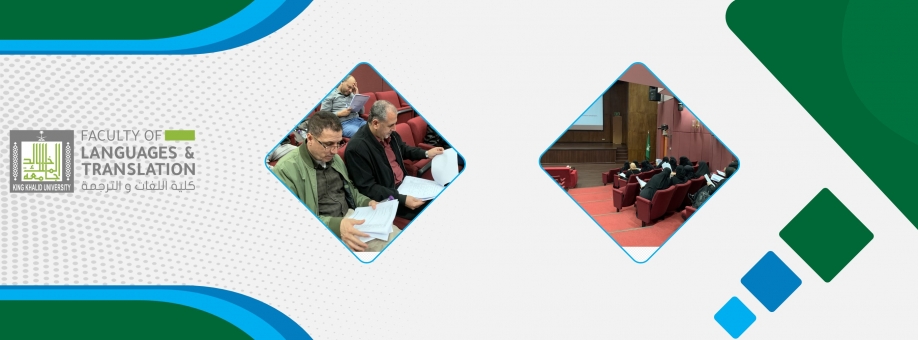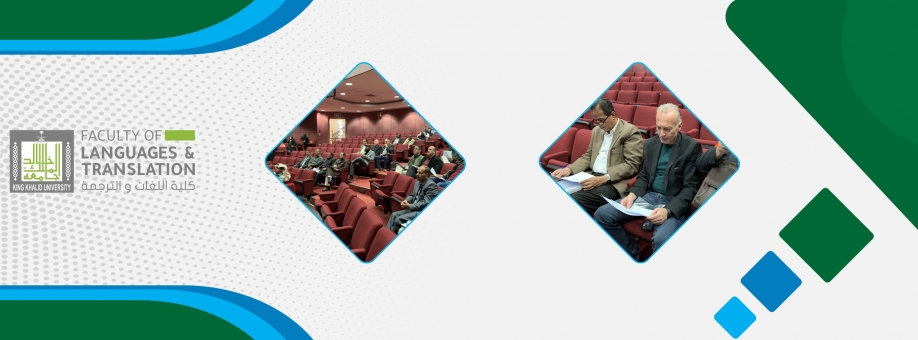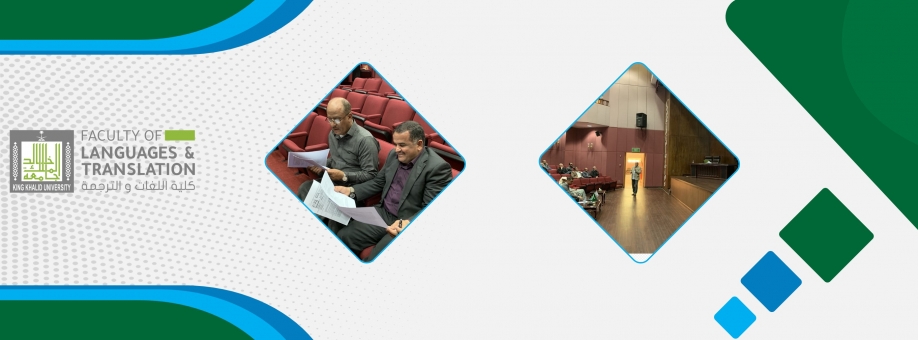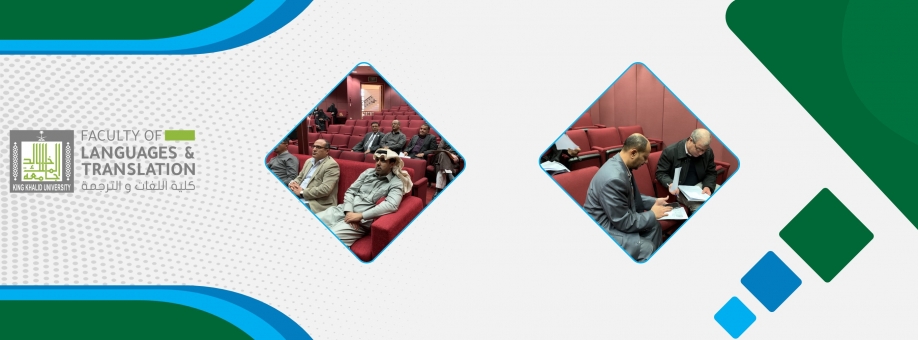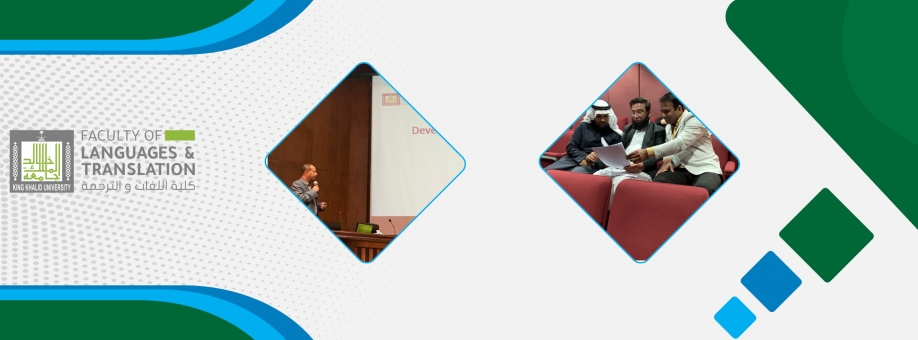Creating Richer, More Robust, Student-Centered Course Learning Outcomes
Vice Dean of Academic Development and Quality, Dr. Abdulrahman Almosa, sponsored a training seminar for the Bachelor of Arts in English program titled 'Creating and Assessing Learning Outcomes' on Saturday, February 8, 2020. The event was co-sponsored by the Deanship of Academic Development and Quality. In attendance were nearly 50 course coordinators from numerous campuses. It is worth noting that both male and female team members attended the event at Saudi German Hospital.
Dr. Abdul Wahed Al Zumor began the event by presenting on the purposes and requirements of developing course learning outcomes and the relevance of this move to the educational aspirations of the Kingdom, as stated in Vision 2030. He stressed the need to shift the focus from content-based education to outcome-based education. When comparing both forms of education, Dr. Al-Zumor explained that content-based learning is dependent mainly upon mastery of course material content. In contrast, outcomes-based education goes beyond mastery of content and into constructing knowledge and skills by the students themselves with guidance from instructors. "Outcomes-based education is part and parcel to the SAQF Level 7 Descriptors and the three domains in which they are in," he said. There was a call to action at the conclusion of his presentation to align course learning outcomes and the program learning outcomes with the SAQF framework.
Dr. Eman Alzaanin, Supervisor of the Academic Development and Quality Unit, expounded upon the fundamentals of outcomes-based education. Dr. Alzaanin emphasized the need to create an aligned curriculum where the intended learning outcomes, the learning activities and resources, and the assessment tasks and criteria are all aligned to enhance students' attainment of the intended learning outcomes at the course and programme level. She walked the participants through an exercise designed to activate the ability to spot the extent of alignment between course intended learning outcomes and written assessment tasks. "We do not want students just to learn what they think they will be tested on. By ensuring that assessment tasks mirror intended learning outcomes, the curriculum will be accurately reflected," she noted. Dr. Alzaanin also introduced a checklist to evaluate and ensure the quality of assessment in three phases: designing of the assessment, marking and verification, and review and recommendations. "This will ensure that the teaching activities of the instructor and learning activities of the student are heading in the same direction," she concluded. The end of Dr. Alzaanin's session was quite active, with a proposal put forward towards modifying the assessment structure in use.
The FLT is grateful to the Deanship of Academic Development and Quality for its co-sponsorship of the event and Quality Consultant, Dr. Ahmed Farid, for his brief explanation of benchmarking and measuring course learning outcomes along with assessments. "Thank you all for giving up part of your weekend to attend this most important event. We will begin the process of revising course learning outcomes in the near future," said Dr. Almosa.
The Faculty of Languages and Translation is dedicated to providing excellence in all aspects of its educational offerings.
Date: 2/8/2020
Source: Faculty of Languages and Translation

